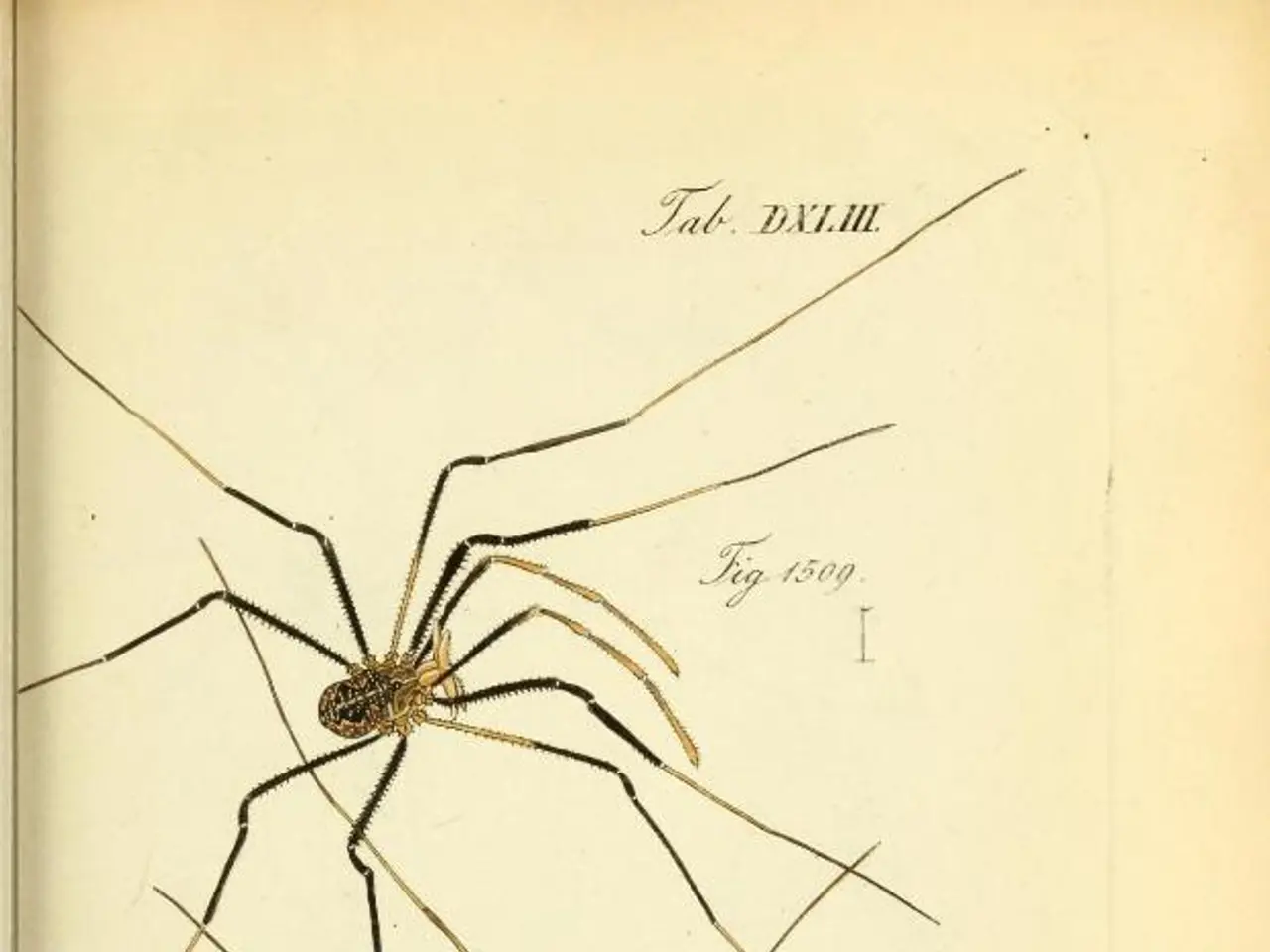Venomous Spider's Poison Holds Potential Lifesaving Secrets
In the heart of Brisbane, a groundbreaking discovery is being made by Infensa Bioscience, a startup founded by Glenn King and Nathan Palpant. The company has developed a drug version of Hi1a, a compound discovered from the venom of the Funnel-web spider, for use in clinical settings.
Hi1a is a remarkable compound that blocks the stress signals in oxygen-deprived cells, potentially preventing cell shutdown. This breakthrough could revolutionise the treatment of acute heart attacks.
The aim of the upcoming trials is to determine whether the protective effects seen in laboratory animals can be safely replicated in people. If successful, Hi1a could potentially be deployed by first responders to limit damage in the critical first hours of a cardiovascular emergency.
The use of natural toxins for drug design is a growing trend in biomedical science. The principle behind it is that these toxins have evolved to manipulate ion channels and metabolic processes, making them valuable templates for drug design. In fact, the antidiabetic drug semaglutide (Ozempic) originated from the venom of the Gila monster, a lizard native to North America.
The search for therapeutic compounds in venoms extends beyond spider species. Researchers have been exploring the potential of venoms from various animals, including those found on K'gari (Fraser Island). Infensa Bioscience's research team, led by biochemist Glenn King, has been at the forefront of this discovery.
Funnel-web spiders are not naturally aggressive toward humans, but their venom contains a complex mixture of peptides that can paralyze prey by hijacking nervous system functions. Experiments have shown that Hi1a can interfere with the chain reaction that begins when blood supply is cut off during a heart attack or stroke, potentially preventing up to 80 percent of brain damage in mouse models even hours after a stroke began.
Researchers believe that other compounds found in Funnel-web venom could be valuable for treating neurological disorders or chronic pain. These peptides are capable of altering ion channel activity, the gateways that regulate electrical signals in cells.
As the trials for the drug version of Hi1a, designed to treat acute heart attacks, approach, there is a growing excitement in the scientific community. If successful, this could mark a significant step forward in the treatment of cardiovascular diseases.
Infensa Bioscience was founded by Dr. Glenn King, who conducted the research leading to the discovery of Hi1a at the University of Queensland. The team continues to analyze compounds found in Funnel-web venom, highlighting how a single venom source can open multiple pathways in medical science.
The repurposing of animal venoms as a source of bioactive compounds is a testament to the power of nature in the pursuit of medical advancements. These peptides, capable of interacting directly with the molecular systems that govern nerve signaling and muscle contractions, are truly a treasure trove waiting to be explored.
Human trials for Hi1a are scheduled to begin later this year, marking an exciting new chapter in the field of cardiovascular medicine.
Read also:
- Peptide YY (PYY): Exploring its Role in Appetite Suppression, Intestinal Health, and Cognitive Links
- Toddler Health: Rotavirus Signs, Origins, and Potential Complications
- Digestive issues and heart discomfort: Root causes and associated health conditions
- House Infernos: Deadly Hazards Surpassing the Flames








